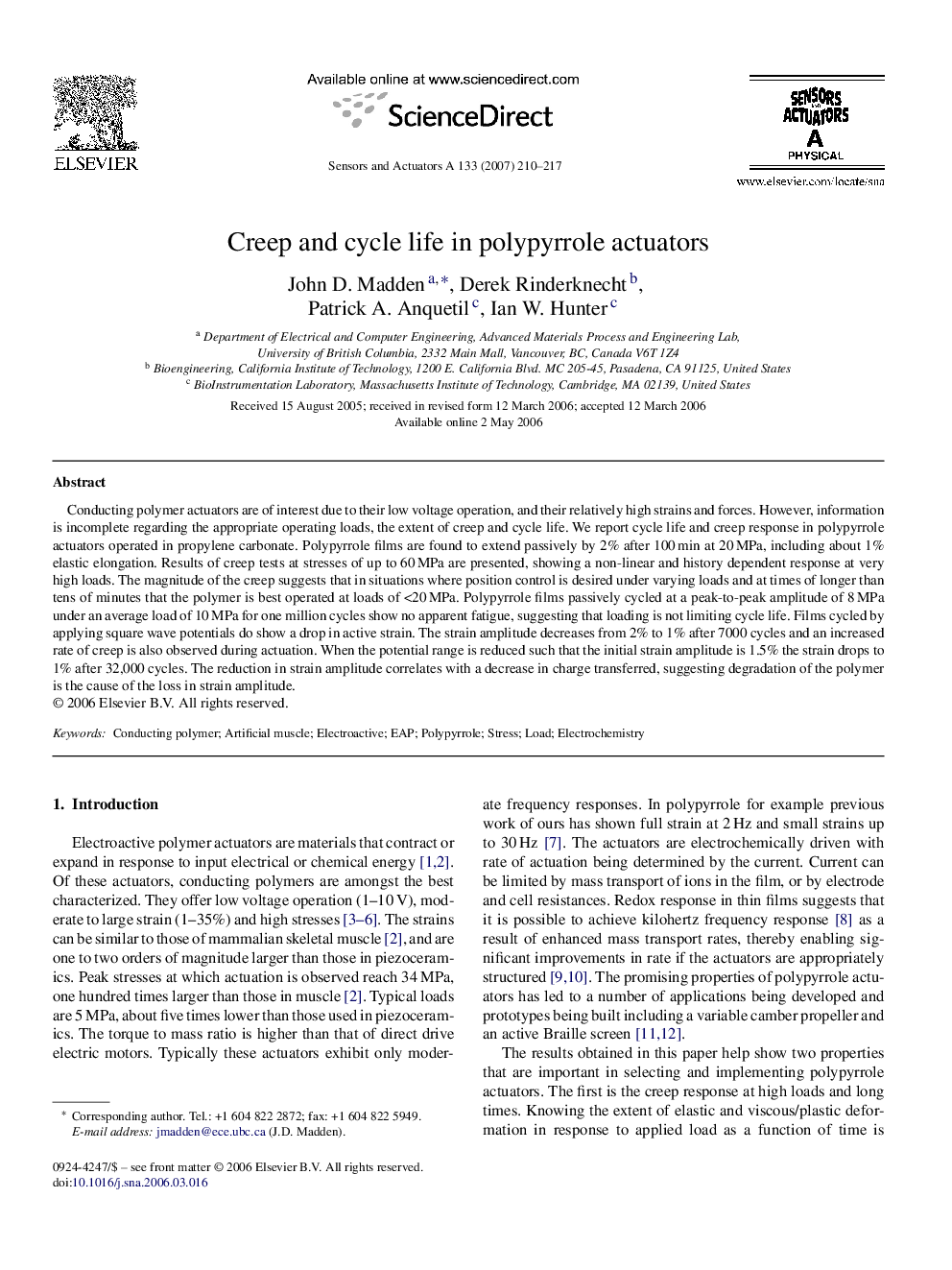| Article ID | Journal | Published Year | Pages | File Type |
|---|---|---|---|---|
| 749987 | Sensors and Actuators A: Physical | 2007 | 8 Pages |
Conducting polymer actuators are of interest due to their low voltage operation, and their relatively high strains and forces. However, information is incomplete regarding the appropriate operating loads, the extent of creep and cycle life. We report cycle life and creep response in polypyrrole actuators operated in propylene carbonate. Polypyrrole films are found to extend passively by 2% after 100 min at 20 MPa, including about 1% elastic elongation. Results of creep tests at stresses of up to 60 MPa are presented, showing a non-linear and history dependent response at very high loads. The magnitude of the creep suggests that in situations where position control is desired under varying loads and at times of longer than tens of minutes that the polymer is best operated at loads of <20 MPa. Polypyrrole films passively cycled at a peak-to-peak amplitude of 8 MPa under an average load of 10 MPa for one million cycles show no apparent fatigue, suggesting that loading is not limiting cycle life. Films cycled by applying square wave potentials do show a drop in active strain. The strain amplitude decreases from 2% to 1% after 7000 cycles and an increased rate of creep is also observed during actuation. When the potential range is reduced such that the initial strain amplitude is 1.5% the strain drops to 1% after 32,000 cycles. The reduction in strain amplitude correlates with a decrease in charge transferred, suggesting degradation of the polymer is the cause of the loss in strain amplitude.
